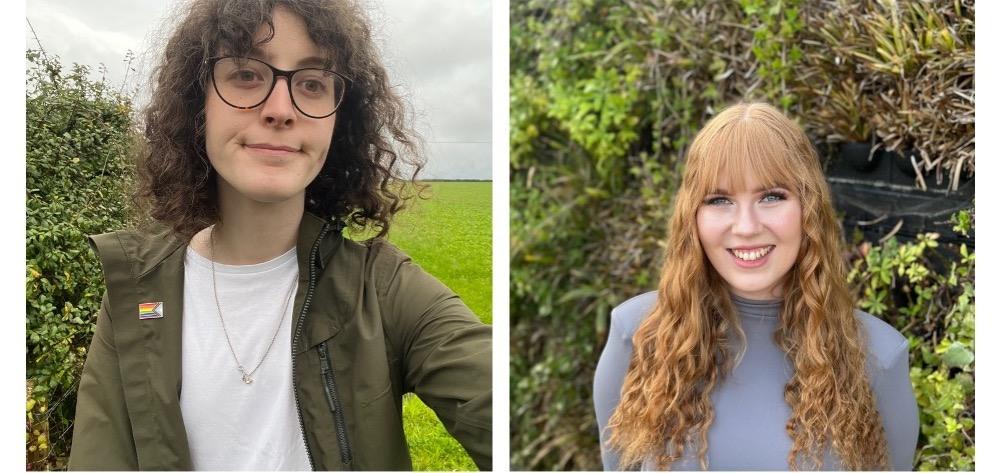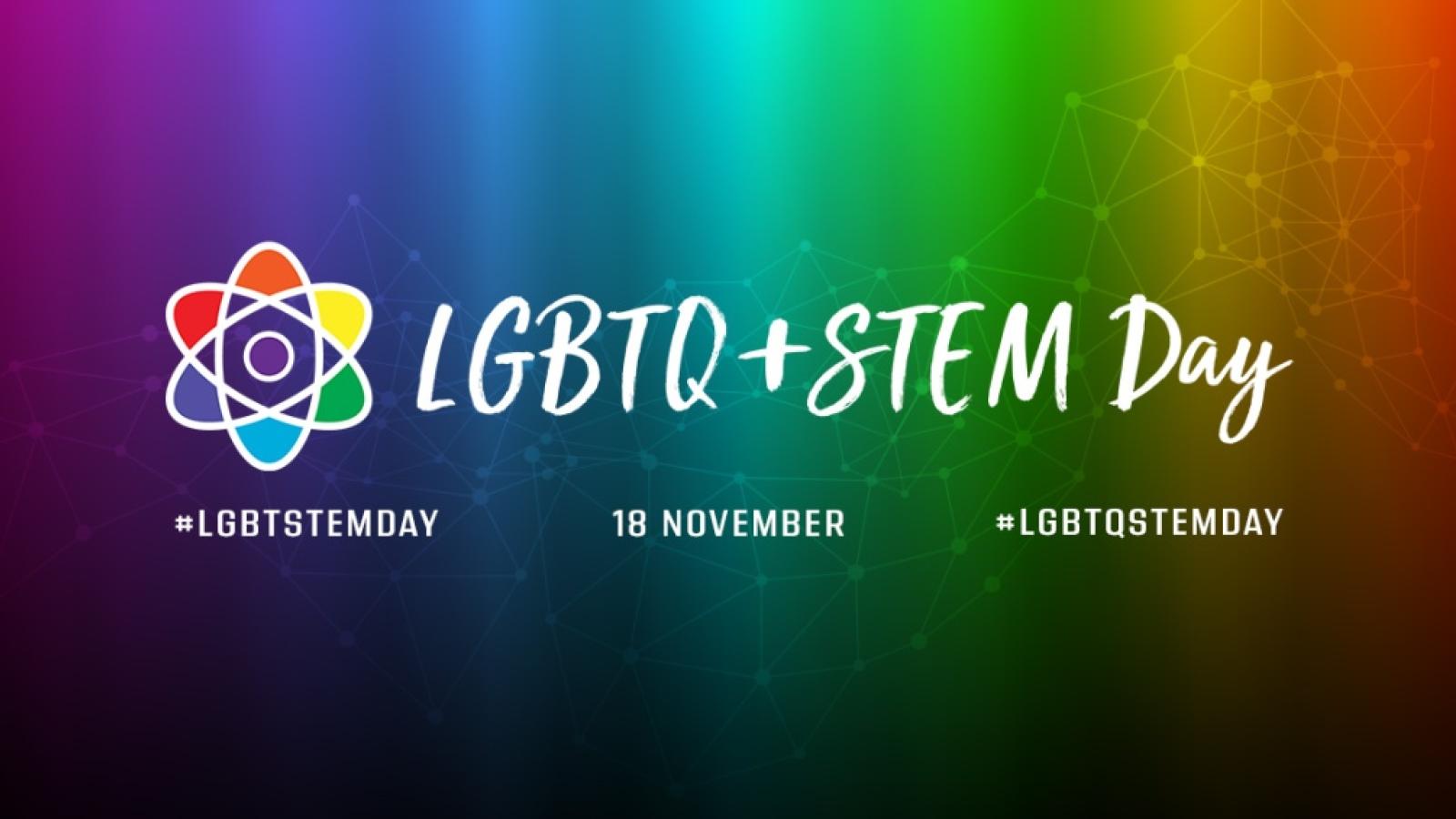LGBTQ+ STEM Day takes place on 18 November: a day dedicated to celebrating the achievements of LGBTQ+ people working in science, technology, engineering and maths, as well as acknowledging the barriers they face, and the importance of improving visibility and representation.
Ahead of this year’s LGBTQ+ STEM Day, we spoke to Aeverie Heuchan (UK DRI at Cardiff) and Tua Piehl (UK DRI HQ) who have been instrumental in establishing the UK DRI’s Pride Network. The network was set up to provide a supportive community for LGBTQ+ people across the UK DRI, as well as a platform to raise awareness of LGBTQ+ issues in dementia research, and promote discussions around improving diversity in research. They told us about their motivations for setting up the network and where they hope it'll be in 5 years' time.
is LGBTQ+ STEM Day

with Aeverie Heuchan (left) and Tua Piehl (right)
Welcome both, can you tell us a bit about what you do at the UK DRI?
Aeverie: I work in the Dion lab at the UK DRI at Cardiff, I just started my PhD looking into genetic factors in Huntington’s, but before that I was working as a technician.
Tua: I’m an administrator in UK DRI HQ – a lot of what I do is around running different scientific events, from finding venues and planning, to administrating meetings. I’m also involved with the Institute’s grassroots diversity platform, the 'Diversity Think Tank', and this is what led me to become involved with the Pride Network.
Why do you think it’s important to have an LGBTQ+ network?
A: I think that people do better science when diversity is promoted on the staff side. There has historically been a lack of diversity in science and I’m passionate about changing that. I also think people do better work when they feel comfortable and safe in the workplace. And I think little things like just having the presence of a network showing that the organisation is taking a stance goes a long way to making people feel comfortable.
T: There are still a lot of issues within the STEM community with LGBTQ+ people not feeling welcome. Surveys done in the field have shown 29% of LGBTQ+ people had considered leaving STEM because they didn’t feel welcome, and 40% never come out to their colleagues or talk about their identity at work. Secondly, we need to know more about how dementia impacts marginalised people differently. For example, loneliness and social isolation are known risk factors, and t more commonly experienced by LGBTQ+ people. But we haven’t really looked into the effect of that.
What led you to set up the UK DRI Pride Network?
A: I came up with the idea at the UK DRI’s internal conference, Connectome, in 2022, and there was a lot of support for it. I spoke to others across the UK DRI and they were enthusiastic. There is an LGBTQ+ staff network at Cardiff, but it’s quite small, and I felt it made sense to establish something within UK DRI that would connect everybody across all the centres.
T: After Aeverie started the conversation at Connectome, it was brought up in the Diversity Think Tank at the beginning of this year and formed from then onwards. Because I already run a lot of meetings in my own role, I had experience to bring to the network.
And in the immediate future, what do you want to do with the network?
A: As well as providing a support network for LGBTQ+ members of the UK DRI, we hope to put on some events, with themes specifically relevant to LGBTQ+ people. There are larger events hosted to talk about representation in science, and we hope to connect in with those and send some people along to watch or present.
T: We want to start hosting social events and establishing a sense of community. Just showing there is a support network available, something people can belong to and feel accepted the way they are. We’re also planning some charity collaborations: we have spoken to the LGBTQ+ Dementia Advisory Group about bringing in an LGBTQ+ patient perspective – together I think we could start some really important conversations around how dementia impacts LGBTQ+ people differently.
Where do you hope to see the network going in 5 years’ time?
A: My hope is that it will be a network of people that anyone can reach out to, and a presence that makes people feel comfortable and safe in their workplace, regardless of whether or not they’re actively engaging with the network.
T: I would love to organise a conference to bring together and promote the work of LGBTQ+ scientists. Not only to talk about their research, but also giving them a voice and a platform to talk about their journey and unique challenges.
Article published: 17 November 2023
